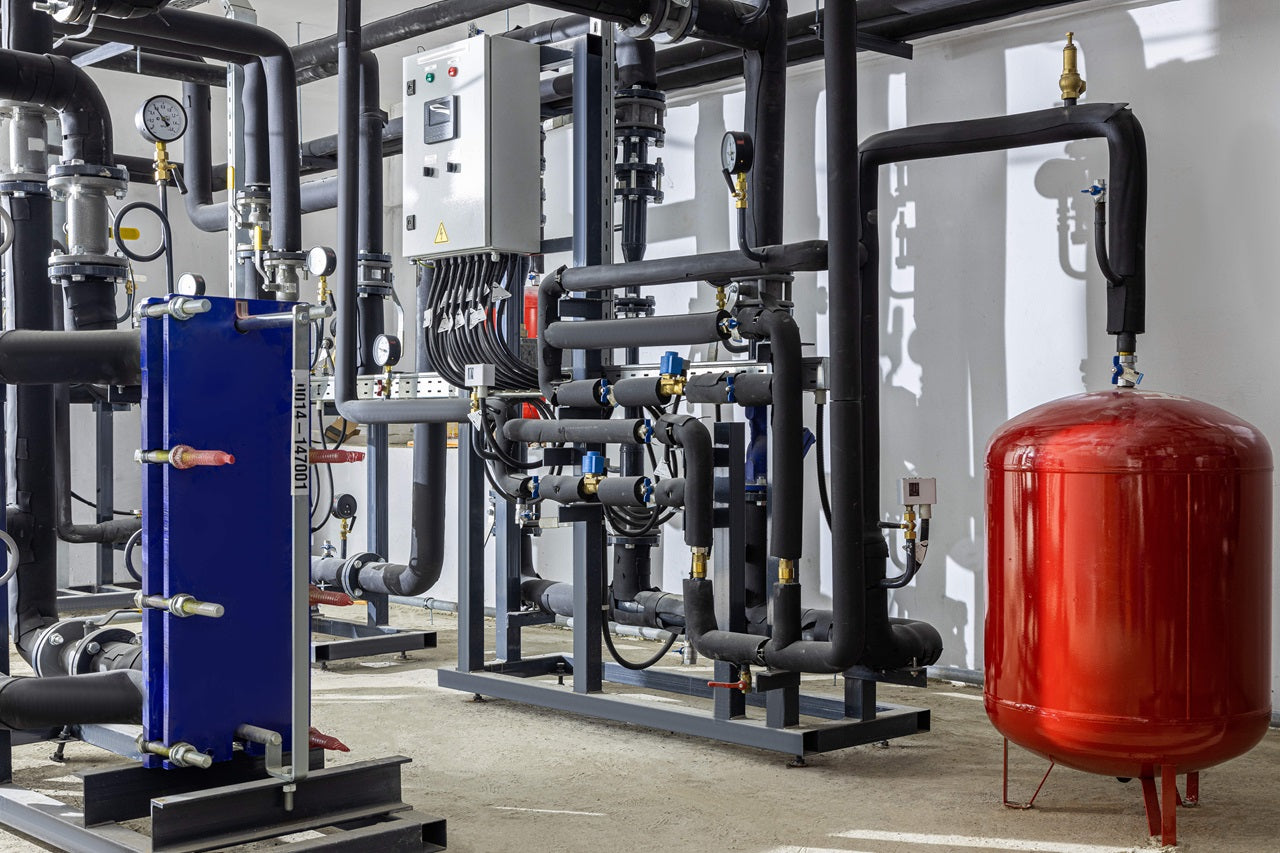Hydraulic systems power essential machinery in construction, manufacturing, and agriculture. These systems rely on hydraulic fluid to transfer energy efficiently, but heat buildup can impact performance and cause wear. Hydraulic oil coolers prevent overheating and maintain optimal operation. These cooling solutions help regulate fluid temperature, ensuring reliability and efficiency. This article explores the function of hydraulic heat exchangers, their role in different applications, and the benefits of proper cooling.
The Importance of Temperature Control in Hydraulic Systems
Excessive heat in hydraulic systems reduces efficiency, increases wear, and shortens component lifespan. Controlling temperature is crucial for preventing fluid degradation and maintaining optimal operation. When hydraulic fluid overheats, it loses viscosity, affecting its ability to lubricate and transfer power.
Discover our most popular product categories – find what you need today!
- Air to Water Heat Exchangers
- Water to Air Heat Exchangers
- Plate Heat Exchangers
- Oil Coolers & Intercoolers
- Tankless Water Heaters
Key problems caused by overheating include:
- Increased friction leads to faster wear on seals, valves, and pumps
- Fluid oxidation, which creates sludge and reduces system efficiency
- Higher risk of leaks due to damaged seals and hoses
- Pressure losses that lower overall performance
A hydraulic oil cooler prevents these issues by maintaining an optimal operating temperature. Cooling systems keep fluid within the recommended temperature range, protecting components and ensuring consistent performance. Investing in proper cooling reduces maintenance costs and extends the life of hydraulic equipment.
How Hydraulic Oil Coolers Work
Hydraulic oil coolers remove excess heat from hydraulic fluid by transferring it to another medium, such as air or water. This process ensures the fluid stays within an acceptable temperature range, preventing performance issues. Different hydraulic heat exchangers are available, each suited for specific applications.
Types of hydraulic oil coolers include:
- Air-cooled coolers – Use fans to push air over cooling fins, dispersing heat from the fluid. These are ideal for mobile machinery and applications where water is not available.
- Water-cooled coolers – Use a liquid-to-liquid system where hydraulic oil passes through a heat exchanger that transfers heat to a water source. These are used in high-power industrial applications.
- Plate-type coolers – Use metal plates to maximize surface area for heat transfer, improving cooling efficiency in compact systems.
Choosing the right hydraulic heat exchanger depends on system size, environmental conditions, and cooling requirements. Selecting an appropriate model ensures effective heat dissipation and enhances equipment durability.
Where Hydraulic Oil Coolers Are Used
Hydraulic systems are widely used in different industries, making efficient cooling a key factor in maintaining productivity. Many applications require a hydraulic oil cooler to prevent overheating and maintain performance under demanding conditions.
Common uses include:
- Industrial manufacturing – Many production lines use hydraulic presses, injection molding machines, and automated systems that require continuous cooling.
- Construction equipment – Excavators, bulldozers, and loaders operate for long hours under heavy loads, generating heat that needs to be managed.
- Agricultural machinery – Hydraulic-driven tractors, harvesters, and sprayers benefit from cooling systems to keep them running smoothly.
- Marine applications – Ships and offshore equipment rely on hydraulic heat exchangers to regulate hydraulic fluid temperature in steering and stabilizing systems.
- Automotive systems – Transmission cooling and engine oil coolers help manage heat in high-performance vehicles and heavy-duty trucks.
Efficient cooling solutions allow these machines to operate reliably, reducing maintenance needs and ensuring uninterrupted performance. Investing in a suitable hydraulic oil cooler for each application improves efficiency and extends equipment life.
Signs of Overheating in Hydraulic Systems
Overheating is a common issue in hydraulic systems, but it often goes unnoticed until it leads to serious problems. Recognizing the warning signs early can help prevent costly repairs and downtime.
Signs that a hydraulic system needs better cooling include:
- Fluid temperatures exceeding recommended levels – Consistently high temperatures indicate that the cooling system is not sufficient.
- Sluggish system response – If hydraulic components react slower than usual, overheating may cause viscosity loss in the fluid.
- Discolored or burnt-smelling fluid – A dark or burnt odor signals thermal breakdown, requiring fluid replacement and improved cooling.
- Frequent leaks and seal failures – Heat causes rubber seals and hoses to harden and crack, increasing the risk of leaks.
- Unusual noise from the pump or valves – Overheated fluid can cause cavitation, leading to noise and potential damage to internal components.
If these symptoms appear, upgrading the hydraulic oil cooler or adjusting the system’s cooling capacity can help maintain performance. Proper maintenance also ensures cooling components function efficiently.
Choosing the Right Hydraulic Oil Cooler
Selecting a hydraulic heat exchanger requires considering multiple factors to match the system’s cooling needs. A well-matched cooler prevents overheating and improves overall performance.
Key considerations when choosing a hydraulic oil cooler:
- Heat load – The cooler must handle the system’s thermal output to prevent excessive fluid temperatures.
- Available space – Some applications have size constraints, making compact cooling solutions necessary.
- Cooling method – Air-cooled models work well in mobile equipment, while water-cooled systems are better for stationary, high-power machines.
- Fluid compatibility – The cooler should be compatible with the type of hydraulic fluid used in the system.
- Operating environment – Dusty or high-temperature environments require coolers with protective features like corrosion-resistant coatings.
Installing the right cooling system ensures hydraulic fluid remains stable, reducing wear and improving reliability. Investing in an efficient hydraulic oil cooler enhances performance while lowering maintenance costs.

